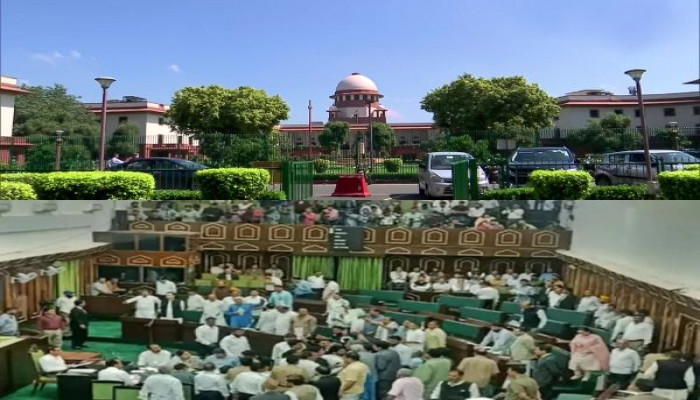SC rules timelines cannot be fixed for governor to assent to bills passed by assembly
- In Reports
- 07:10 PM, Nov 20, 2025
- Myind Staff
In a major setback for the Tamil Nadu government, the Supreme Court said that no fixed timeline can be imposed on the governor for giving assent to bills passed by the assembly.
The reference sent by the Centre through the President reached the Supreme Court on May 14, almost a month after a bench of Justices J B Pardiwala and R Mahadevan took the unusual step of granting deemed assent to 10 bills passed by the Tamil Nadu assembly that had been pending with the governor for months. The bench also went further and set timelines for the governor and the President to either grant or refuse assent to bills passed by state assemblies.
The Centre, represented by solicitor general Tushar Mehta, had argued that "while Parliament may amend the Constitution under Article 368 (subject to the basic structure), the judiciary's role is confined to interpretation. If courts were to expand the meaning of a provision beyond its textual or structural limits, it would confer upon the judiciary a power equivalent to Parliament, a result not envisaged by the framers. Such a course would be contrary to the constitutional scheme."
Opposition-ruled states, represented by senior advocates Kapil Sibal and A M Singhvi, had disagreed with the idea of deemed assent, but they supported the need for timelines for the governor and the President. They said that constitutional authorities had delayed action on bills in ways that weakened the efforts of elected governments to keep poll promises or bring in reforms.







Comments